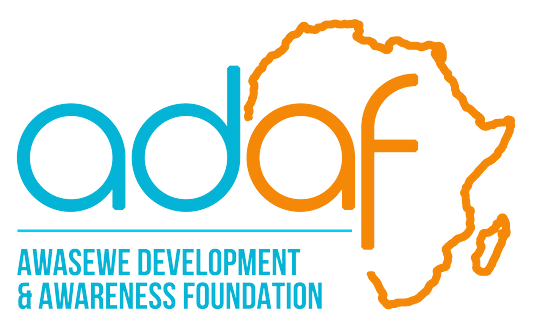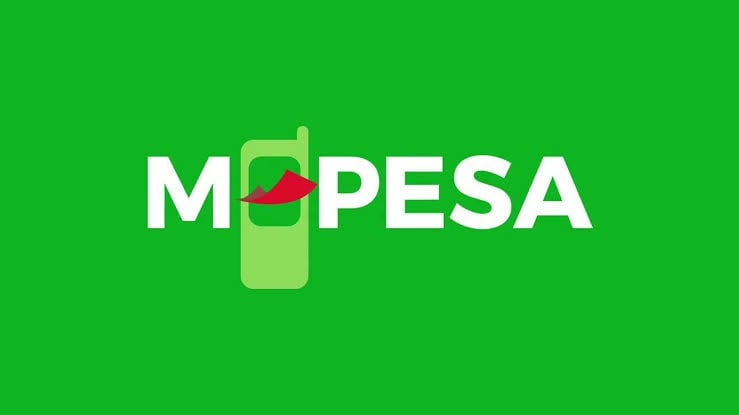ABOUT US
Awasewe Development & Awareness Foundation (ADAF-Kenya) is a charitable foundation, established in 2013 and registered in May 2022; and is dedicated to empowering young men and women in Kenya through technical training and mentorship. Our mission is to restore hope, provide skills, and create employment opportunities for vulnerable individuals who have lost hope in life. By offering technical skills training aligned with Technical and Vocational Education and Training (TVET) principles, we aim to equip young women with the tools they need to thrive in the labor and entrepreneurship market.
Our focus is on supporting youths aged 35 and below who have faced challenges in different perspectives and had limited to no educational opportunities due to their backgrounds or societal or socio-economic challenges. We work in partnership with organizations and stakeholders to ensure comprehensive support through training, mentorship, and access to seed financial support; this will in turn create ripple effects by the trainees being able to create jobs and/ or join the labor force to be stable and be able to provide for themselves and their families.
The demand for skilled labor and entrepreneurship in Kenya presents a significant opportunity to empower young women and uplift their communities. By providing training in various sectors, such as catering, carpentry, masonry, tailoring, and IT skills, we enable our participants to start and run their own businesses, creating a ripple effect that can impact up to ten individuals.
To achieve our goals, we are seeking funding of $180,000for the first 3 year period of our establishment. This funding will be allocated towards the equipping of our training halls in Kibos Kisumu with tools and equipment for training and capacity building, on the land that ADAF Kenya owns, from an in-kind donation from one of the board members.
We are actively seeking partnerships with organizations and stakeholders who share our vision of empowering young men and women and promoting gender inclusivity. By leveraging these partnerships and working together, we can make a significant and sustainable impact on the lives of the young women we serve.
With a dedicated team of professionals with proven track record of success, and a clear roadmap for growth, ADAF-Kenya is well-positioned to empower and uplift young men and women in Kenya. We believe that by providing the necessary training, mentorship, and support, we can create a generation that is self-reliant, entrepreneurial, and able to transform their lives and communities.
In Africa, the challenges of illiteracy, poverty, and health disparities persist, but we stand as a beacon of hope, determined to drive transformative change. Through education, we empower individuals with knowledge, breaking the shackles of illiteracy and offering a path to a brighter future.
Our commitment extends to development, where we support entrepreneurship and livelihoods, especially among women and youths, fostering economic empowerment. In the realm of advocacy, we champion gender equality, sustainable development, and improved healthcare access, amplifying the voices of marginalized communities. Our vision is a continent where every individual has the opportunity to thrive, and together, we’re rewriting the narrative of Africa, one empowered community at a time.
Our primary focus is on marginalized individuals in rural and peri-urban areas, particularly youth, women, and people with disabilities. These groups often face systemic challenges that limit their access to education and economic opportunities.
Youth: Often hindered by financial constraints and lack of educational support, many youth in these areas struggle to secure stable employment or pursue further education.
Women: Females encounter unique obstacles such as societal expectations, early pregnancies, and limited access to educational resources. Our program aims to empower them with valuable skills, breaking gender stereotypes.
People with Disabilities: This group faces barriers in accessing education and training. ADAF Kenya is committed to inclusivity, providing tailored support and accommodations to ensure everyone can benefit from our programs.
Challenges Faced by Target Groups
- Financial Constraints: Limited resources hinder educational pursuits and skill development.
- Societal Expectations: Traditional norms often limit opportunities, especially for women.
- Educational Gaps: Lack of access to quality education contributes to unemployment and poverty.
Location and Facilities Overview
Location: Kibos, Kisumu City
Situated in the heart of Kisumu, our one-acre space in Kibos provides an ideal setting for our Technical Skills Building School.
Facilities Available and Needed
- Current Infrastructure: Temporary structures are in place to kickstart the program. Open-sided halls have been proposed to facilitate air circulation during hot weather.
- We lack training equipment that will ensure easy and seamless replication of the real work setup, to ensure industrial readiness of the trainees.
Future Developments: ADAF Kenya plans to invest in permanent structures, ensuring a conducive learning environment. These structures will accommodate classrooms, workshops, and administrative offices. We will also invest in modern equipment for ease of operations and training.
Overview of the Three-Year Partnership Sought
ADAF Kenya seeks a dynamic three-year partnership to establish and sustain the Technical Skills Building School in Kibos, Kisumu City. With an annual budget of $15,900 and a total ask of $47,700 for the project’s entire duration, ADAF Kenya envisions a transformative impact on marginalized youth, women, and people with disabilities.
How the Funds Will Be Utilized
- Program Development and Implementation: The majority of the funds will be dedicated to developing and implementing robust training programs in construction skills, agribusiness, and tailoring. This includes skilled facilitators, training materials, and hands-on learning experiences.
- Facilitation and Infrastructure: Funds will support facilitators’ stipends, utilities, and the construction of open-sided halls for training. This ensures a conducive learning environment, enhancing the quality of education.
- Inclusivity and Start-up Grants: A portion will be allocated to inclusivity programs, ensuring the inclusion of people with disabilities. Additionally, a business start-up grant for each trainee will foster entrepreneurship.
Potential Impact
This partnership aims to empower marginalized communities, providing tangible skills for economic self-sufficiency. With a focus on basic human needs (food, shelter, clothing), the project envisions breaking the cycle of poverty and contributing to sustainable community development.
Monitoring and Evaluation: Ensuring Impact and Accountability
Metrics and Indicators for Success
- Number of businesses established: our goal is to produce more job creators, and the more who start their own businesses and workshops, the more employment opportunities that are sustainable will be created.
- Completion Rates: Tracking the number of trainees completing the program successfully.
- Employment Rates: Measuring the percentage of graduates gaining employment or starting businesses.
- Business Sustainability: Assessing the longevity and success of businesses initiated by trainees.
Monitoring Mechanisms we will use
- Regular Assessments: we will ensure continuous evaluation of training quality through regular assessments and feedback loops.
- Stakeholder Engagement: by Involving beneficiaries, facilitators, and the community in the monitoring process.
Evaluation Methods and Reporting we will use
- Periodic Audits: Conducting internal audits to ensure financial transparency and accountability.
- External Audits: Engaging external auditors to provide an unbiased evaluation of financial practices.
- Annual Reports: Transparent reporting to donors and partners on program progress, challenges, and achievements.
This partnership promises not only effective training but also a commitment to accountability, ensuring that every dollar contributes to sustainable and impactful change in the lives of the beneficiaries. ADAF Kenya invites partners to join hands in creating a lasting legacy of empowerment and community development.
Sustainability is a key component to all partnerships, and we value the opportunity to be independent, and still impactful after the 3 years support. We plan to implement the following steps to be sustainable:
1. Diversifying Income Streams:
- Expanded Cohort Model: Gradually expanding the cohort size to 80 students, with 60 paying for training and 20 sponsored. This enhances financial sustainability while ensuring inclusivity.
- Commercial Ventures: Creating revenue-generating opportunities within the training, such as selling produce (eggs, vegetables) cultivated during agribusiness training and handmade furniture.
2. Partnerships and Collaborations:
- Staff Placement Services: Charging companies for connecting them with well-trained graduates, ensuring a sustainable revenue stream. A nominal fee, not exceeding 10%, will be levied for the initial four months of employment.
- Collaboration with Industries: Establishing partnerships with industries for joint ventures, internships, and collaborative projects, fostering financial support and mutual benefit
3. Social Entrepreneurship:
- Marketable Products: Developing marketable products during training, like customized furniture and tailored garments, and channeling the proceeds back into the center.
- Consultation Services: Offering consultancy services in construction and agribusiness, tapping into the expertise of our skilled facilitators to generate additional income.
4. Community Engagement:
- Community Events: Organizing events and exhibitions showcasing the skills and products of the TVET center, attracting local support and potential investors.
- Alumni Network: Establishing a robust alumni network that contributes financially and supports the center through mentorship and advocacy.
5. Sustainable Agricultural Practices:
- Continuous Agriculture: Ongoing agricultural practices will not only serve as a learning opportunity but also provide a sustainable source of income through the sale of surplus produce.
6. Continuous Improvement and Adaptation:
- Flexibility in Programs: Adapting training programs based on market demands, ensuring graduates are equipped with skills that are relevant and in demand.
- Continuous Learning for Facilitators: Regular training for facilitators to stay abreast of industry trends and maintain the quality of education.
7. Financial Prudence:
- Efficient Resource Management: Implementing strict financial management practices, minimizing unnecessary expenditures, and optimizing resource utilization.
8. Building a Resilient Brand:
- Quality Assurance: Maintaining a reputation for delivering high-quality training and producing skilled graduates will attract more paying students and industry collaborations.
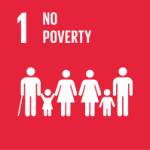
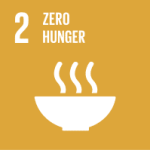
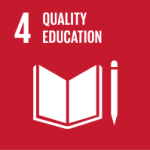
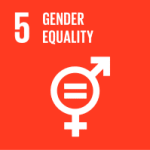
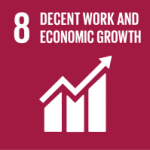
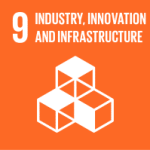
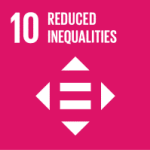
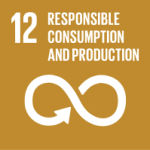
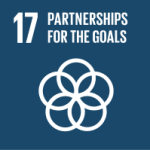
In Africa, the challenges of illiteracy, poverty, and health disparities persist, but we stand as a beacon of hope, determined to drive transformative change. Through education, we empower individuals with knowledge, breaking the shackles of illiteracy and offering a path to a brighter future. With a population of close to 1.5 million people, Kisumu county has a big gap in terms of basic needs for sustenance and economic growth amongst its inhabitants, with poverty, illiteracy and disease being the signature reference of this region and its environs.
Our commitment extends to development, where we support entrepreneurship and livelihoods, especially among women and youths, fostering economic empowerment. In the realm of advocacy, we champion gender equality, sustainable development, and improved healthcare access, amplifying the voices of marginalized communities. Our vision is a continent where every individual has the opportunity to thrive, and together, we’re rewriting the narrative of Africa, one empowered community at a time.
Our Solution addresses challenges affecting the basic human needs and we solve this through technical training around the three basic human needs of:
- Food: offering Agribusiness training and mentorship on climate smart practices to counter changing climatic conditions while addressing the growing number of mouths to feed through population growth.
- Shelter : with technical training around masonry, painting, carpentry and plumbing, we equip and offer skills’ sets to address the housing gap of over 2 million houses in Kenya.
- Clothing: Through tailoring, and sustainable menstrual hygiene for our sisters and mums, we offer sustainable and replicable clothing solutions and training that solves our day to day needs.
Our goal is to offer equal opportunities to all gender, with no prejudice.
